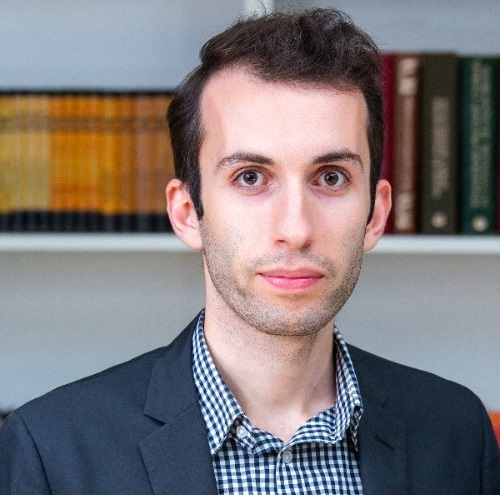By Irakli Javakhishvili
In the past month, people in Kazakhstan and the wider post-Soviet region have been paying close attention to the trial of Kuandyk Bishimbayev, the Kazakh ex-economy minister, who faced charges of brutally assaulting and murdering his wife, Saltanat Nukenova.

On May 13, the trial found Bishimbayev guilty of torturing and murdering Nukenova, sentencing him to 24 years in prison. Usually, such a court case would attract attention only due to the high-profile nature of the defendant and the gruesome details of the crime. However, its outcome is seen as a watershed moment in Kazakhstan’s judicial history, signaling a potential end to political impunity in the country.
Back in 2018, Bishimbayev was sentenced to 10 years in prison for embezzlement and bribery. However, his sentence was significantly reduced, and he was released on parole in 2019 after receiving a pardon from former President Nursultan Nazarbayev. This case was viewed by many as a glaring example of how personal connections and elite status can influence legal outcomes, leading to widespread concern that Bishimbayev might escape severe punishment for his wife’s murder. These fears were not unfounded given Kazakhstan’s history of political impunity.
Much depended on the outcome of the trial, as it would indicate whether unaccountability of political elites remains prevalent in the Central Asian country or if it has genuinely transformed into what the current government under President Kasym-Jomart Tokayev describes as a “New and Just Kazakhstan.” Ultimately, the public’s apprehensions were alleviated by a prison sentence and the live broadcast of the trial, which was watched by millions for seven weeks. The resonance of the case extended beyond Kazakhstan’s borders, attracting attention from women’s NGOs in several post-Soviet countries. Rallies supporting the victim’s family were held in New York and various European cities.
The trial has also spurred legal reforms. Public outrage at years of violence against women and advocacy from civil society organizations led to the passing of a new law criminalizing domestic violence. Activists had been demanding this since Kazakhstan decriminalized domestic violence seven years ago, reclassifying battery and minor harm to health as administrative offenses. On April 15, President Tokayev signed the new law, which toughened the penalties for domestic violence and violence against children, coinciding with the start of the trial and aiming to demonstrate that the government is finally addressing issues long raised by activists. The law was long overdue. According to a 2018 study backed by UN Women, about 400 women die from domestic violence each year in Kazakhstan.
The adoption of the new law and broader reforms in Kazakhstan have been welcomed by the international community, including Western countries. Earlier this month, the United States and Kazakhstan convened an annual United States-Kazakhstan High-Level Dialogue on Human Rights and Democratic Reforms in Astana, Kazakhstan’s capital. It covered various human rights issues, focusing on the implementation of reforms initiated by President Tokayev, which aim to strengthen the protection of rights for people with disabilities, combat human trafficking, ensure freedom of assembly and speech, support media development, and address asset recovery and corruption.
In a released statement, the United States reaffirmed its “strong support for the full implementation of President Tokayev’s reform agenda and commended Kazakhstan for progress made in the advancement of human rights.” Uzra Zeya, the U.S. Under Secretary of State for Civilian Security, Democracy, and Human Rights, who led the delegation, welcomed the law passed in April to combat domestic violence.
Kazakhstan’s democratization journey is far from over, although it is ahead of most of its neighbors in the region, including China and Russia. Since the election of President Tokayev in 2019, the country has implemented constitutional amendments, decentralizing power, limiting presidential authority, and increasing the influence of an elected parliament. As illustrated by Bishimbayev’s court case, the independence of the judiciary has increased, and the process for registering new political parties has been simplified, leading to a more representative parliament.
Looking ahead, the United States should continue to collaborate with Kazakhstan to further secure the principles of democracy and human rights. By promoting these values, Washington can help foster political stability and economic growth in Kazakhstan and the wider region, creating an environment conducive to sustained partnerships. Additionally, aligning Central Asian countries with democratic principles can help mitigate the influence of surrounding authoritarian regimes. A commitment to human rights and democracy can also enhance the international reputation of Central Asian countries, making them more attractive to foreign businesses and investors.
Bishimbayev’s case represents a potential turning point for Kazakhstan, ending an era of political impunity. This case has galvanized public awareness, creating momentum for further legal and societal changes. The West should support Kazakhstan in its efforts to modernize the country’s political system and improve its human rights environment, especially amid the geopolitical upheaval in Eurasia, which can often hinder progress.
Such involvement would cement Kazakhstan’s path toward more democratic governance. In turn, the West, including the United States, would ensure that Kazakhstan remains a reliable and stable partner in the region, focused on democratization despite being surrounded by authoritarian neighbors. Lastly, promoting global democracy and upholding international norms strengthens the United States’ global leadership role, which is needed more than ever as democracy continues to decline worldwide.
Author: Dr. Irakli Javakhishvili – Associate Professor in Politics and International Relations at Webster University.
(The opinions expressed in this article are solely those of the author and do not necessarily reflect the views of World Geostrategic Insights).







